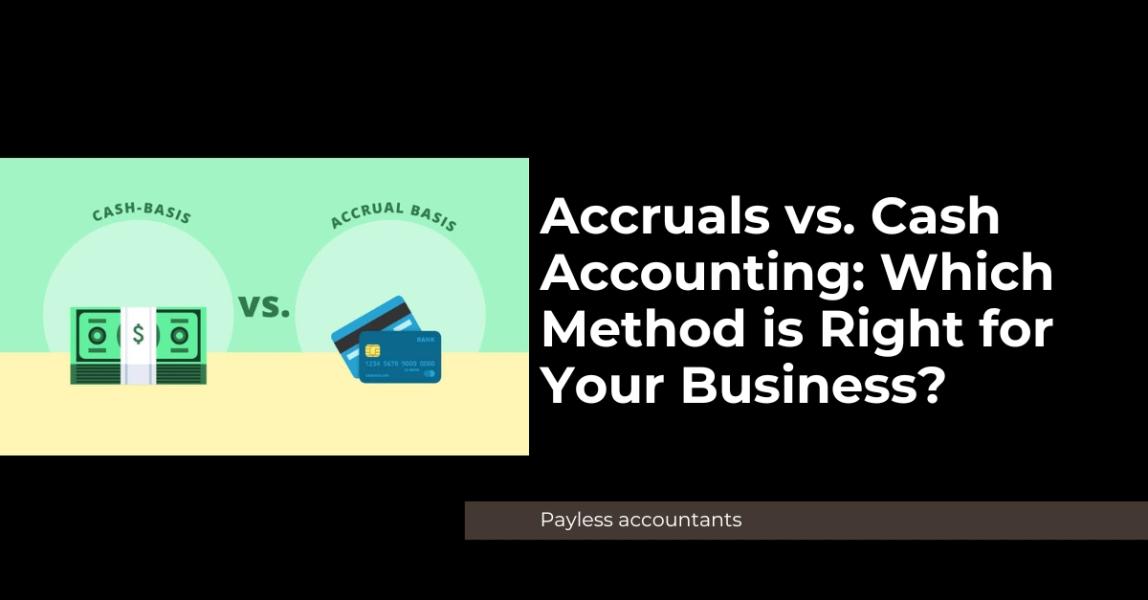Accruals vs. Cash Accounting: Which Method is Right for Your Business?
What is Cash Accounting?
Cash accounting is a straightforward method where income and expenses are recorded only when money actually changes hands. You record revenue when you receive payment and expenses when you pay them.
? Pros:
-
Simple and easy to manage: Ideal for small businesses or sole proprietors.
-
Clear cash flow picture: Since transactions are recorded when money is received or paid, it's easy to track available cash.
-
Lower bookkeeping costs: Requires less tracking and fewer entries.
? Cons:
-
Limited financial insight: Doesn’t show money that is owed or pending.
-
May not reflect the true financial position: Especially for businesses with accounts receivable or payable.
What is Accrual Accounting?
Accrual accounting records income when it is earned and expenses when they are incurred, regardless of when money is exchanged.
? Pros:
-
More accurate financial reporting: Gives a complete picture of financial performance over time.
-
Better for long-term planning: Helps you understand future income and liabilities.
-
Required for GAAP compliance: If your business grows or seeks investment, this method is usually required.
? Cons:
-
More complex: Requires understanding of invoices, payables, receivables, and other non-cash transactions.
-
Cash flow can be harder to track: Since income and expenses are recorded before actual cash movement, your accounts may look profitable even if cash is tight.
Key Differences at a Glance
| Feature | Cash Accounting | Accrual Accounting |
|---|---|---|
| Income recorded | When cash is received | When earned (regardless of payment) |
| Expenses recorded | When cash is paid | When incurred |
| Complexity | Low | Moderate to high |
| Cash flow visibility | High | Medium |
| Financial accuracy | Basic | Detailed and precise |
Which Method is Right for You?
Here are a few scenarios to help guide your decision:
? Choose Cash Accounting if:
-
You're a freelancer, consultant, or small service business.
-
You don’t carry inventory.
-
You want a simple system with real-time cash flow tracking.
? Choose Accrual Accounting if:
-
You sell products or offer services on credit.
-
You want to attract investors or apply for loans.
-
You need a more accurate picture of profitability and performance.
Can You Switch Methods?
Yes, businesses can switch from cash to accrual (or vice versa), but there are tax implications and possible need for IRS approval if you're in the U.S. It’s best to consult with a professional accountant or financial advisor before making the change.
Final Thoughts
Choosing the right accounting method depends on the size of your business, the complexity of your operations, and your long-term goals. While cash accounting works well for many small businesses, accrual accounting offers greater insights and scalability.
Need help figuring out which method fits your business best? Reach out to a qualified accountant for personalized advice tailored to your unique financial situation.

